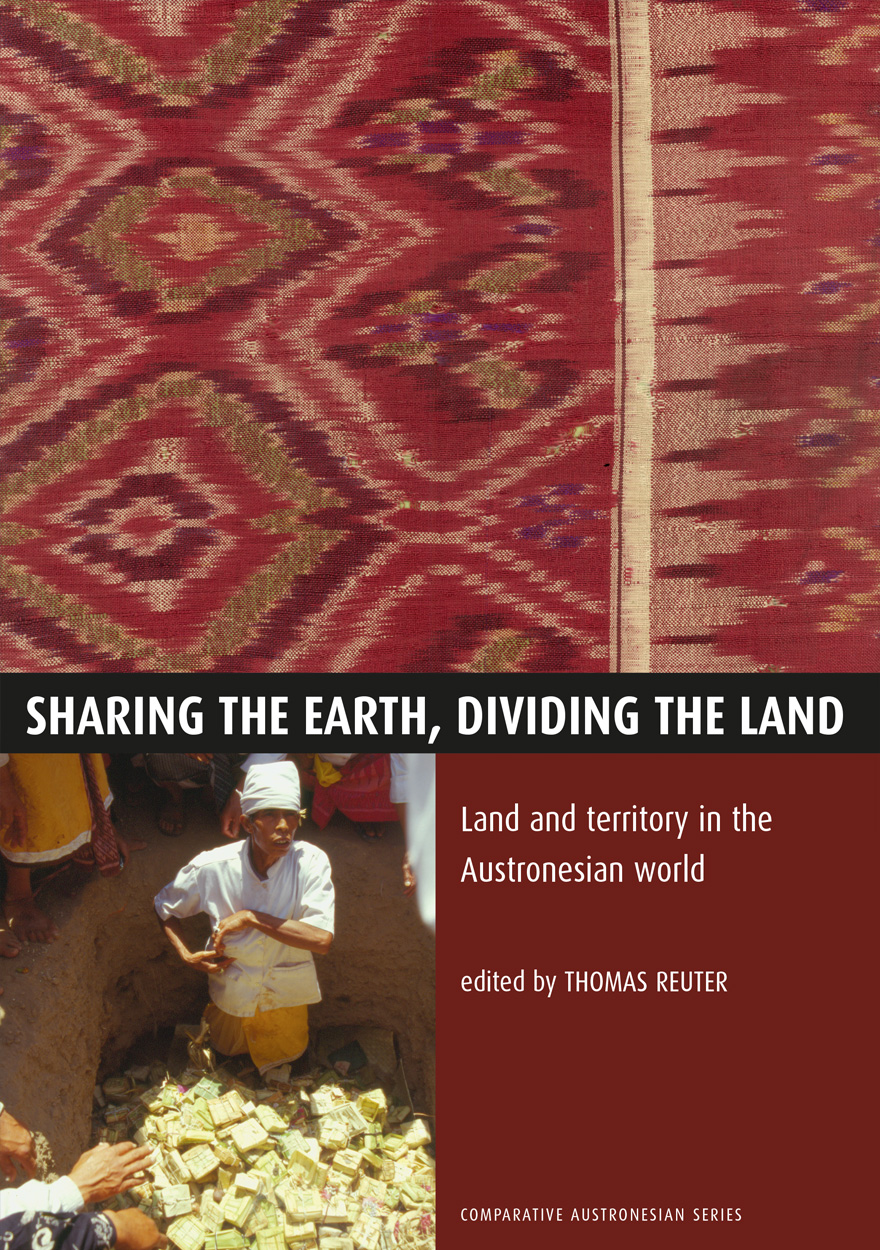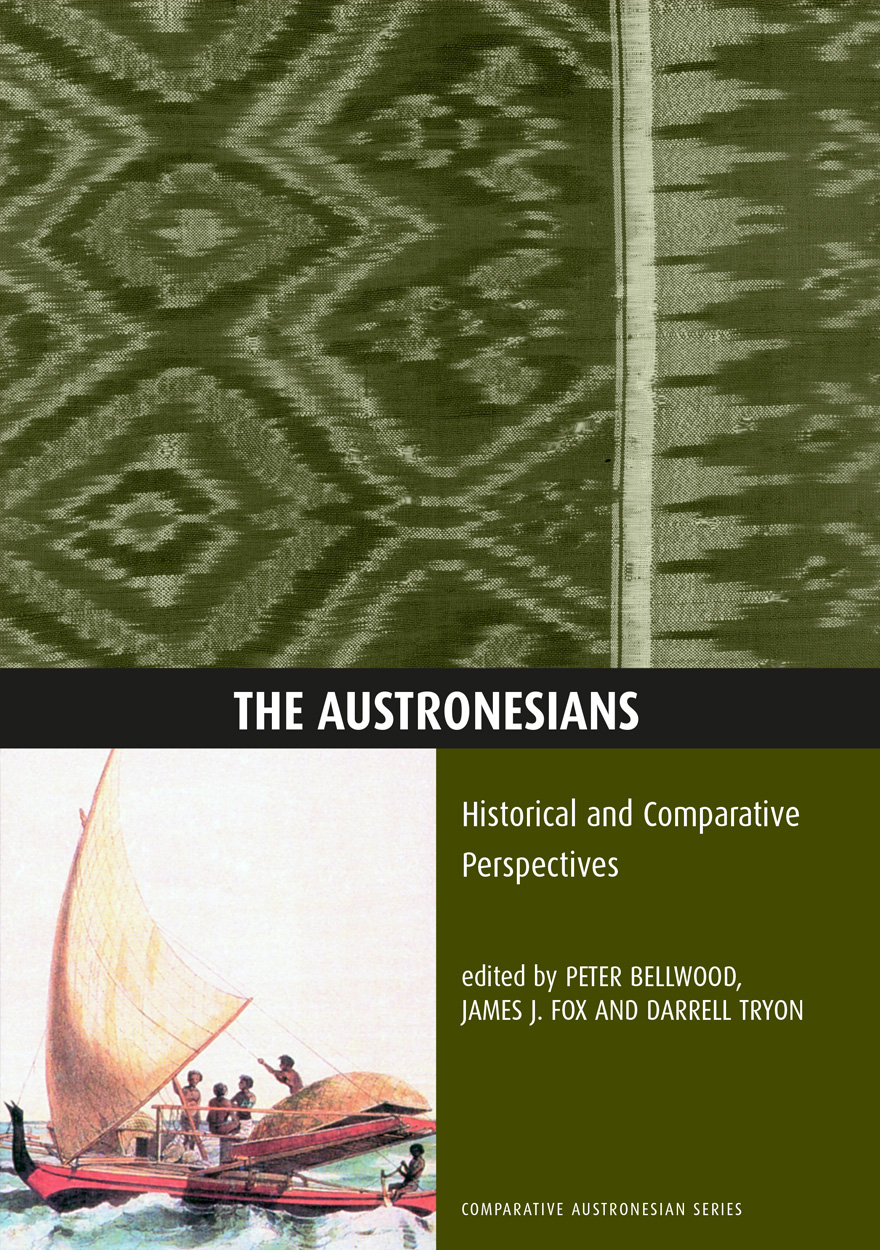Search titles
Displaying results 581 to 590 of 637.

Humanities Research: Volume XIII. No. 1. 2006 »
Britishness & Otherness
Edited by: Christina Parolin, Robyn Westcott
Publication date: November 2006
Humanities Research is an internationally peer-reviewed journal published by the Research School of Humanities at The Australian National University. The Research School of Humanities came into existence in January 2007 and consists of the Humanities Research Centre, Centre for Cross-Cultural Research, National Europe Centre and Australian National Dictionary Centre. Launched in 1997, issues are thematic with guest editors and address important and timely topics across all branches of the humanities.
This issue of Humanities Research presents a selection of papers offered to the ‘Britishness & Otherness: Locating Marginal White Identities in the Empire’ symposium, convened at the Humanities Research Centre at The Australian National University in July 2004. The symposium was designed to provoke a more sustained and nuanced contemplation of the mechanisms by which a plethora of British identities circulated within the Empire. Moreover, participants were encouraged to question the assumption that ‘Britishness’ was a static cultural identity accessed easily and equally by all phenotypically similar (i.e. white skinned) subjects of the British Empire.
Award winner
The Coalition for Western Women’s History, has awarded Sarah Carter’s article “Britishness, ‘Foreignness’, Women and Land in Western Canada 1890s-1920s” in Humanities Research Vol XIII. No. 1. 2006, the 17th Annual Joan Jensen – Darlis Miller Prize for the best article published in 2006 in the field of History of Women and Gender in the Trans-Mississippi West.
Download for free
Not available for purchase

Australian Political Lives »
Chronicling political careers and administrative histories
Edited by: Tracey Arklay, John Nethercote, John Wanna
Publication date: October 2006
This monograph brings together some of the best practitioners of the art and craft of political biography in Australia. They are simultaneously some of our best scholars who, at least in part, have turned their attention to writing Australian political lives. They are not merely chroniclers of our times but multidisciplinary analysts constructing layers of explanation and theoretical insight. They include academic, professional and amateur biographers; scholars from a range of disciplines (politics, history, sociology, public administration, gender studies); and politicians who for a time strutted the political stage. The assembled papers explore the strengths and weaknesses of the biographical approach; the enjoyment it can deliver; the problems and frustrations of writing biographies; and the various ways the ‘project’ can be approached by those constructing these lives. They probe the art and craft of the political biographer.

Origins, Ancestry and Alliance »
Explorations in Austronesian Ethnography
Edited by: James J. Fox, Clifford Sather
Publication date: October 2006
This collection of papers, the third in a series of volumes on the work of the Comparative Austronesian Project, explores indigenous Austronesian ideas of origin, ancestry and alliance and considers the comparative significance of these ideas in social practice. The papers examine social practice in a diverse range of societies extending from insular Southeast Asia to the islands of the Pacific.

Sharing the Earth, Dividing the Land »
Land and territory in the Austronesian world
Edited by: Thomas Reuter
Publication date: October 2006
This collection of papers is the fifth in a series of volumes on the work of the Comparative Austronesian Project. Reflecting the unique experience of fourteen ethnographers in as many different societies, the papers in this volume explore how people in the Austronesian-speaking societies of the Asia-Pacific have traditionally constructed their relationship to land and specific territories. Focused on the nexus of local and global processes, the volume offers fresh perspectives to current debate in social theory on the conflicting human tendencies of mobility and emplacement.

The Austronesians »
Historical and Comparative Perspectives
Publication date: September 2006
The Austronesian-speaking population of the world are estimated to number more than 270 million people, living in a broad swathe around half the globe, from Madagascar to Easter Island and from Taiwan to New Zealand. The seventeen papers in this volume provide a general survey of these diverse populations focusing on their common origins and historical transformations. The papers examine current ideas on the linguistics, prehistory, anthropology and recorded history of the Austronesians. This volume is a publication of the Research School of Pacific and Asian Studies’ Comparative Austronesian Project.

Inside Austronesian Houses »
Perspectives on domestic designs for living
Edited by: James J. Fox
Publication date: September 2006
The eight papers in this volume examine the spatial organization of a variety of Austronesian houses and relate the domestic design of these houses to the social and ritual practices of the specific groups who reside within them. The houses considered in this volume range from longhouses in Borneo to the meeting-houses of the Maori of New Zealand and from the magnificent houses of the Minangkabau of Sumatra to the simpler dwellings of the population of Goodenough Island in Papua New Guinea. Together these papers indicate common features of domestic design from island South-East Asia to Melanesia and the Pacific. This volume is a publication of the Research School of Pacific Studies’ Comparative Austronesian Project.

The Poetic Power of Place »
Comparative Perspectives on Austronesian Ideas of Locality
Edited by: James J. Fox
Publication date: September 2006
This collection of papers is the fourth in a series of volumes on the work of the Comparative Austronesian Project. Each paper describes a specific Austronesian locality and offers an ethnographic account of the way in which social knowledge is vested, maintained and transformed in a particular landscape. The intention of the volume is to consider common patterns in the representation of place among Austronesian-speaking populations.

Interpreting Chekhov »
Authored by: Geoffrey Borny
Publication date: August 2006
The author’s contention is that Chekhov’s plays have often been misinterpreted by scholars and directors, particularly through their failure to adequately balance the comic and tragic elements inherent in these works. Through a close examination of the form and content of Chekhov’s dramas, the author shows how deeply pessimistic or overly optimistic interpretations fail to sufficiently account for the rich complexity and ambiguity of these plays. The author suggests that, by accepting that Chekhov’s plays are synthetic tragi-comedies which juxtapose potentially tragic sub-texts with essentially comic texts, critics and directors are more likely to produce richer and more deeply satisfying interpretations of these works. Besides being of general interest to any reader interested in understanding Chekhov’s work, the book is intended to be of particular interest to students of Drama and Theatre Studies and to potential directors of these subtle plays.

Islands of Turmoil »
Elections and Politics in Fiji
Authored by: Brij V. Lal
Publication date: August 2006
“It is not so much whether things are not as bad as they ought to be or could have been. It is, rather, whether things could have been much better”.
By rights, the island nation of Fiji should be thriving. It is easily the most developed country in the South Pacific; it is a hub for regional transportation and communication links, the home of international diplomatic, educational and aid organisations, with a talented multiethnic population. Yet, since its independence it has suffered two military coups in 1987 and an attempted putsch in 2000, resulting in strained institutions, and disrupted improvements to essential infrastructure, and to educational, social and medical services.

Maverick Mathematician »
The Life and Science of J.E. Moyal
Authored by: Ann Moyal
Publication date: August 2006
J.E. Moyal has been pronounced ‘one of Australia’s most remarkable thinkers’. Yet, he was, essentially, a scientific maverick. Educated in a modest high school in Tel Aviv, he took himself to France to train as an engineer, statistician and mathematician and escaped to England as France fell.
It was from outside academia that he entered into communication with the ‘high priest’ of British theoretical physics, P.A.M. Dirac, challenging him with the idea of a statistical basis of quantum mechanics. Their correspondence forms the core of this book and opens up an important and hitherto unknown chapter for physicists, mathematicians and historians of science. Moyal’s classic paper, ‘A statistical basis for quantum mechanics’, also reproduced here in full, has come to underlie an explosion of research and to underpin an array of major technological developments.
Joe Moyal emerges in this small biography as a witty and intrepid character, a scuba diver and wine connoisseur, a generous teacher and researcher, and a man whose academic life-spanning France, Ireland, Britain, the USA and Australia-intersected with some of the leading scientists of the 20th century.



